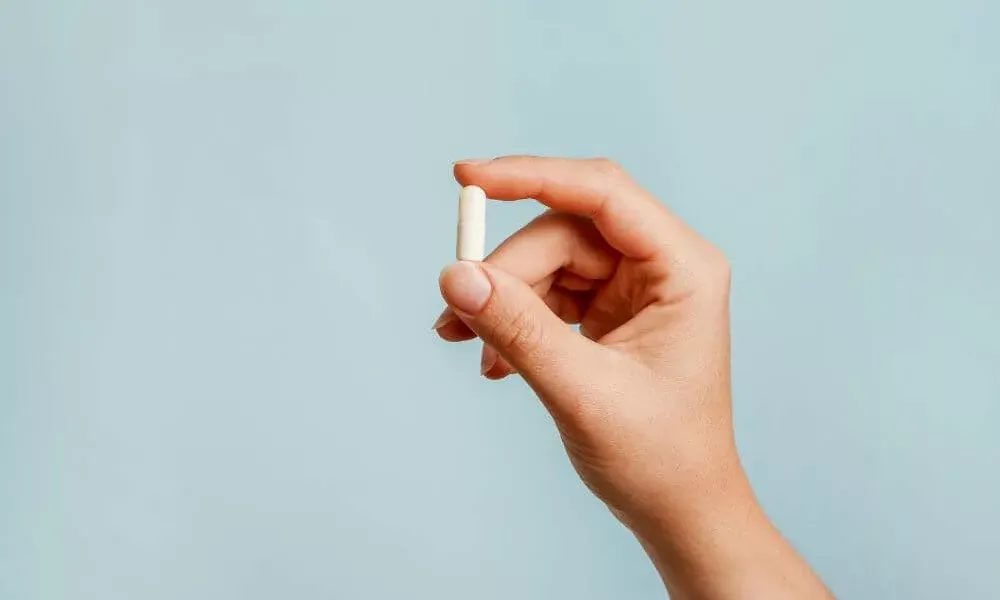Defend Against Defective Pharmaceutical Product Allegations


Key Takeaways:
- Product liability pertains to injuries purportedly resulting from flawed products.
- Manufacturers must provide specific, clear, and conspicuous instructions and warnings, fulfilling their duty to inform.
- The “learned intermediary doctrine” is a defense for drug manufacturers in failure-to-warn claims about drug or device risks.
- Speak with an experienced litigation attorney at Orndorff Mowen if your business is facing a product liability lawsuit.
Medical innovations have proliferated in recent decades, from groundbreaking antiviral medications to unprecedented advances in implant technology. These advances in medical science, however, have brought a wave of toxic tort and product liability allegations against pharmaceutical companies. Litigation can be expensive and time-consuming, limiting your company’s ability to continue advancing these breakthroughs.
Orndorff Mowen can defend your company against pharmaceutical defect lawsuits. Read on to learn more about how defenses like the learned intermediary doctrine protect pharmaceutical manufacturers and how a skilled West Virginia pharmaceutical business attorney can help protect your company from litigation.
What Constitutes Pharmaceutical Liability?
Pharmaceutical liability is part of an area of tort law known as “product liability.” Tort law covers almost any kind of personal injury claim, such as slip-and-fall accidents or medical malpractice. Product liability involves injuries allegedly caused by defective products. This could be a defect in the product’s design, its manufacturing, or the way it is marketed to consumers. A pharmaceutical liability claim specifically deals with injuries from pharmaceutical products. This may include prescription drugs, over-the-counter drugs, and medical devices.
Almost anyone in the supply chain for pharmaceutical products could be liable for damages, depending on the circumstances, from a drug manufacturer to a prescribing physician. A plaintiff might claim that a drug manufacturer is liable for failing to adequately test a drug or warn consumers about potential side effects. They could also seek to hold a doctor liable for prescribing a defective drug.
Drug manufacturers owe numerous duties to consumers. For example, they have a duty to test drugs to ensure they are safe for their intended uses. A similar duty applies to medical device manufacturers. The U.S. Food and Drug Administration (FDA) sets testing guidelines for drug manufacturers. Even if the FDA approves a drug or device, a plaintiff may seek to find a manufacturer liable for injuries if they claim the drug is defective in other ways.
What is the Duty to Inform?
Drug manufacturers have a “duty to inform,” meaning they are responsible for providing information about the risks and proper use of their products. This includes:
- Instructions on how to use a drug or device safely and in a way that avoids risk to the greatest extent possible; and
- Adequate warnings about hidden dangers that a drug or device could present.
These instructions and warnings must be specific, clear, and conspicuous. Manufacturers must place them somewhere where consumers can easily see them. They often place warning labels on product packaging that provide the information deemed most important. Package inserts have more detailed information. They may also provide warnings and information in multiple languages and with symbols to ensure that as many people as possible can understand them.
A manufacturer’s duty to inform applies whenever the following conditions are present:
- A product presents a danger to consumers when they use the product reasonably and as instructed by the manufacturer;
- The manufacturer knows about the danger; and
- The consumer is not aware of the danger.
Drug manufacturers often place more warnings on their products than the law strictly requires out of an abundance of caution.
What is the Learned Intermediary Doctrine?

As mentioned above, pharmaceutical liability allows plaintiffs to claim damages from people involved in multiple parts of a drug’s supply chain. The “learned intermediary doctrine” is a defense that drug manufacturers may be able to use in failure-to-warn claims involving risks associated with a drug or device.
The concept behind the learned intermediary doctrine is that prescribing doctors are in a better position to determine whether a particular drug is a good fit for a patient and to advise that patient of the risks that the drug could present. Pharmaceutical manufacturers have no way of directly communicating with patients aside from warning labels, package inserts, and advertising. The doctor-patient relationship offers a much more effective channel of communication. Making drug manufacturers responsible for warning patients about risks could even infringe on that relationship.
The scope of the learned intermediary doctrine varies among jurisdictions. Many states follow the version found in the Restatement (Second) of Torts, a legal treatise that summarizes the law but has no legal force on its own. The Restatement’s version of the doctrine consists of four elements:
- A drug manufacturer is only liable for damages caused by product defects that are “unreasonably dangerous” to patients.
- An “unreasonably dangerous” defect involves a drug’s design or the way it is marketed.
- A drug has a design defect if the risk of harm from using it is greater than the potential benefit.
- A drug has a marketing defect if the manufacturer fails to advise physicians about the proper use of the drug and any known risks.
The History of the Learned Intermediary Doctrine in West Virginia
Some jurisdictions reject the learned intermediary doctrine altogether. West Virginia used to be one of them. In 2007, the Supreme Court of Appeals of West Virginia issued a ruling in State ex rel. Johnson & Johnson Corp. v. Karl refusing to adopt the doctrine.
The majority’s reasoning was largely based on “the impact direct-to-consumer advertising has had on the physician/patient relationship.” This led three of the court’s five justices to conclude that the doctrine is “outdated.”
The effect of the Johnson & Johnson ruling was fairly short-lived. The state legislature enacted the learned intermediary doctrine in 2016 as § 55-7-30 of the West Virginia Code. This effectively overrode the court’s decision.
When Does the Learned Intermediary Doctrine Apply?
In West Virginia, the learned intermediary doctrine protects pharmaceutical companies when they provide adequate warning to “prescribing [doctors] or other health care providers” about the “foreseeable risks of harm.” The legislature stated in § 55-7-30(b) that it intended to provide drug manufacturers with a defense in cases involving “inadequate warning or instruction.”
Disputes are certain to arise regarding the adequacy of the warnings provided by a pharmaceutical company. Many jurisdictions have developed case law that addresses this question. West Virginia appellate courts, however, have yet to develop a clear-cut test for determining adequacy in failure-to-warn claims.
How Does the Learned Intermediary Doctrine Protect Pharmaceutical Companies in West Virginia?
The learned intermediary doctrine, as enacted by the West Virginia Legislature, protects pharmaceutical companies by:
- Shifting liability to doctors or other healthcare providers as long as manufacturers provide them with adequate warnings; and
- Removing manufacturers’ responsibility for communicating risks directly to consumers.
What Are the Elements of a Learned Intermediary Defense in West Virginia?

Section 55-7-30 of the West Virginia Code sets out the elements of the learned intermediary defense in this state. In a failure-to-warn claim, a drug manufacturer must establish the following elements:
1. The Healthcare Provider Was a Learned Intermediary
The healthcare provider must have the legal authority to prescribe the drug or make the medical device available to the plaintiff. They must also be “in a position to reduce the risks of harm” based on adequate warnings from the manufacturer. A prescribing physician is typically in the best possible position to reduce risk for the patient. They have access to their patients’ medical histories and other relevant information, which can help them make an informed decision about a drug or device.
2. The Manufacturer Adequately Warned the Healthcare Provider of the Risks of the Product
This element consists of two parts. The manufacturer must show (1) that they provided warnings and (2) that these warnings were adequate. West Virginia appellate courts have not established a clear test for adequacy, but past court decisions involving pharmaceutical liability offer some guidance.
A 2018 decision by the West Virginia Court of Appeals, McNair v. Johnson & Johnson, includes a review of the requirements for a pharmaceutical liability failure-to-warn claim. The adequacy of a warning is based in part on “what the reasonably prudent manufacturer would accomplish in regard to the safety of the product.” A manufacturer only has a duty to warn about risks associated with “foreseeable” uses of a drug or device.
3. The Healthcare Provider’s Negligence Caused the Plaintiff’s Injuries
Finally, the manufacturer must demonstrate that the provider caused the plaintiff’s injuries by failing to warn them about the risks of the drug or device. The legal term “proximate cause” refers to the idea that the plaintiff’s injuries most likely would not have happened if the provider had not been negligent.
What Are the Exceptions to the Learned Intermediary Doctrine?
West Virginia courts have not identified any exceptions to the learned intermediary doctrine yet, but other jurisdictions have. These are situations in which a manufacturer could be liable in a failure-to-warn claim even if they can establish all the elements of the learned intermediary defense. Examples of exceptions in other jurisdictions may include the following:
- Vaccines administered to patients in public without a doctor’s direct involvement;
- Oral contraceptives and certain other contraceptive devices;
- Failure to warn physicians about risks associated with foreseeable off-label uses of a drug; and
- Direct-to-consumer marketing of a drug, although it seems likely that West Virginia has now rejected this as an exception.
Alternate Defenses Against Defective Pharmaceutical Product Lawsuits

Other defenses may also be possible in pharmaceutical liability cases.
Expired Statute of Limitations
Under West Virginia law, a plaintiff must file a lawsuit within two years of the later of either:
- The date they sustain an injury; or
- The date they discover an injury.
The latter category is fairly common in pharmaceutical liability cases since injuries can take time to manifest.
Lack of Causation
Drug manufacturers can try to prove their product did not cause the plaintiff’s injuries. They can also cast doubt on the correlation between the use of the product and the injury. They might suggest the involvement of a pre-existing condition or interaction with another medicine, for example.
State-of-the-Art Defense
This defense relates to what the manufacturer could have known when they designed or manufactured the drug or product. It requires evidence that the product was compliant with state-of-the-art design and manufacturing standards at the time.
Patient’s Assumption of Risk
The assumption of risk defense argues that a patient knew the risks of a drug and consented to use it anyway. It often appears in medical malpractice cases.
Misuse
A manufacturer’s duty of care only extends to foreseeable uses of their products. They are not liable for injuries that result from misuse by consumers, especially if the misuse was not reasonably foreseeable.
How West Virginia Pharmaceutical Companies Can Protect Themselves Against Defective Product Allegations
The following steps can help pharmaceutical companies avoid or respond to product liability claims:
- Make product safety a top priority.
- Create adequate disclosures and warnings for all products.
- Inform physicians of the risks of drugs and medical devices.
- Keep records to document these communications.
- Train sales teams to stick to the warnings you have developed for your products.
- Be wary of activities like direct-to-consumer marketing that could affect a learned intermediary defense.
How a West Virginia Pharmaceutical Liability Attorney Can Help
An experienced and skilled attorney can offer the following benefits:
- Examine your current practices for any potential sources of liability;
- Instill practices that can reduce your liability;
- Advise you on new legal strategies and developments; and
- Defend your company against tort claims.
Orndorff Mowen is Ready to Defend Your Business
The firm has decades of experience as legal counsel in high-risk litigation, corporate legal counsel, and appellate law at the state and national levels. Check out the attorney pages for more details about their qualifications.
- Jon Orndorff
- Kelly Calder Mowen
- Gordon Mowen
Keep Drug Lawsuits From Dragging Your Company Down
Pharmaceutical liability claims can appear even if you have made every effort to protect your business. The knowledgeable attorneys at Orndorff Mowen can advise you about your rights and obligations, identify areas where you could be vulnerable to claims, and advocate for you. Schedule a confidential consultation today by calling 866-481-2765 or using our online contact form.
"*" indicates required fields

